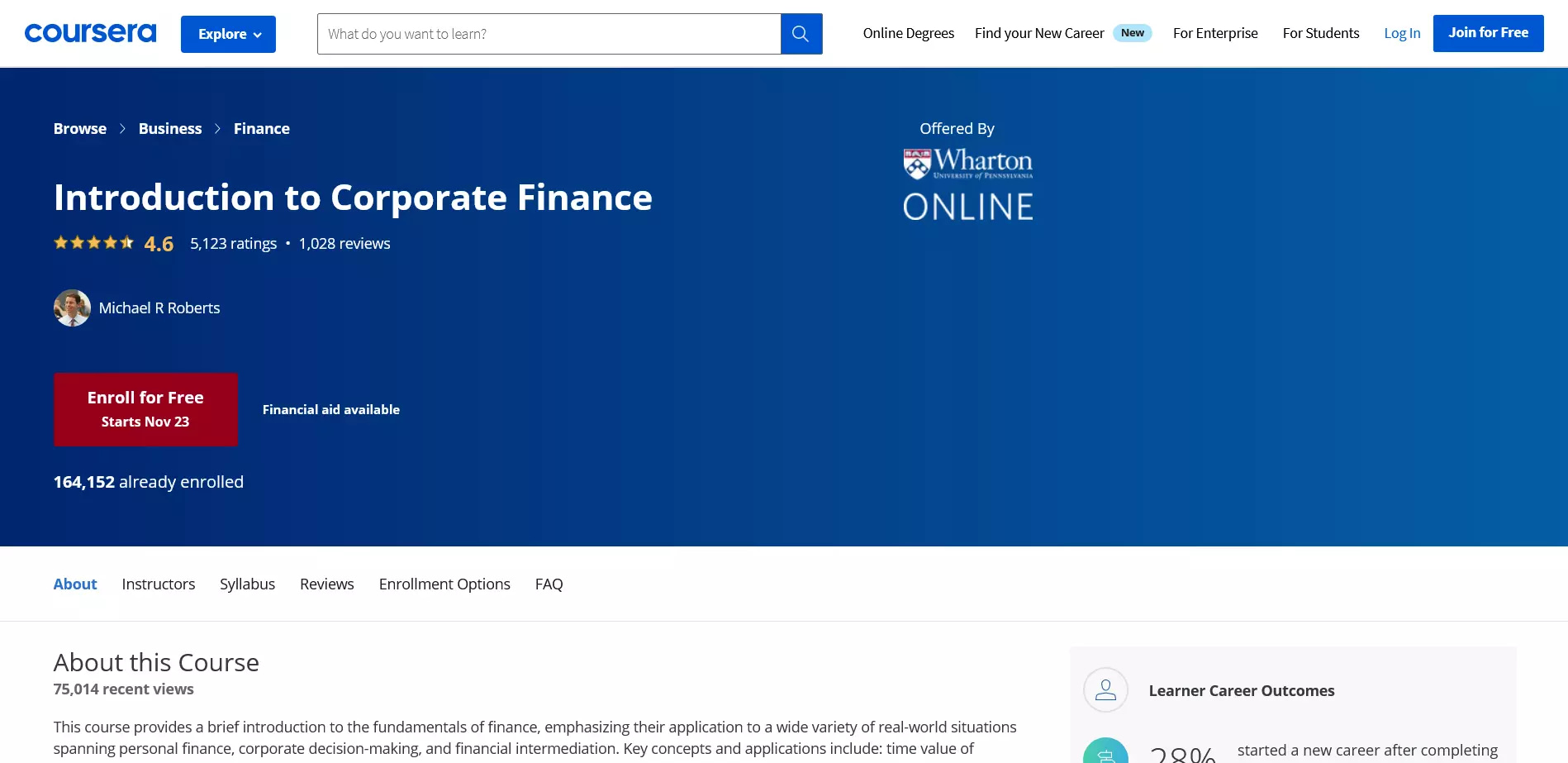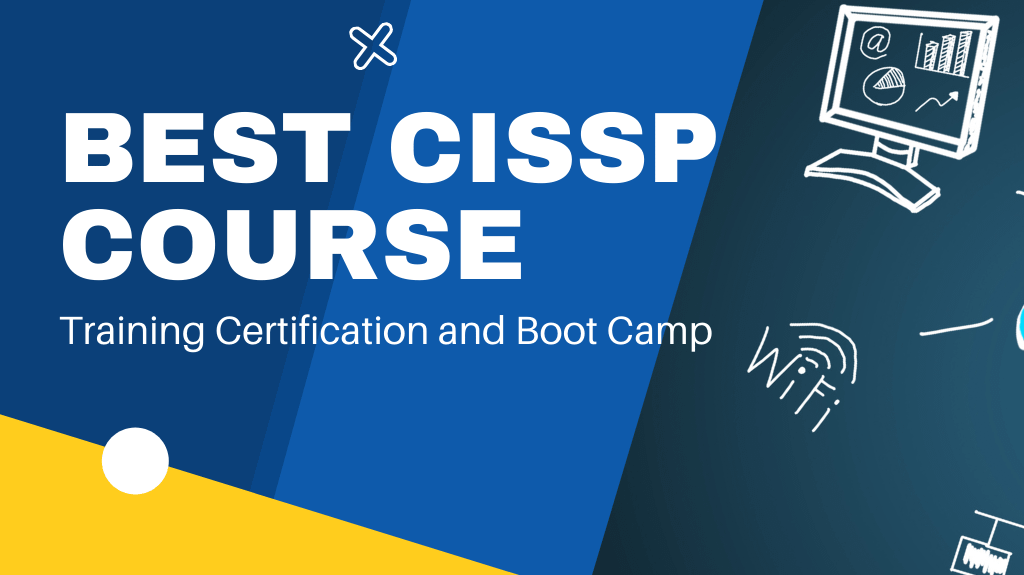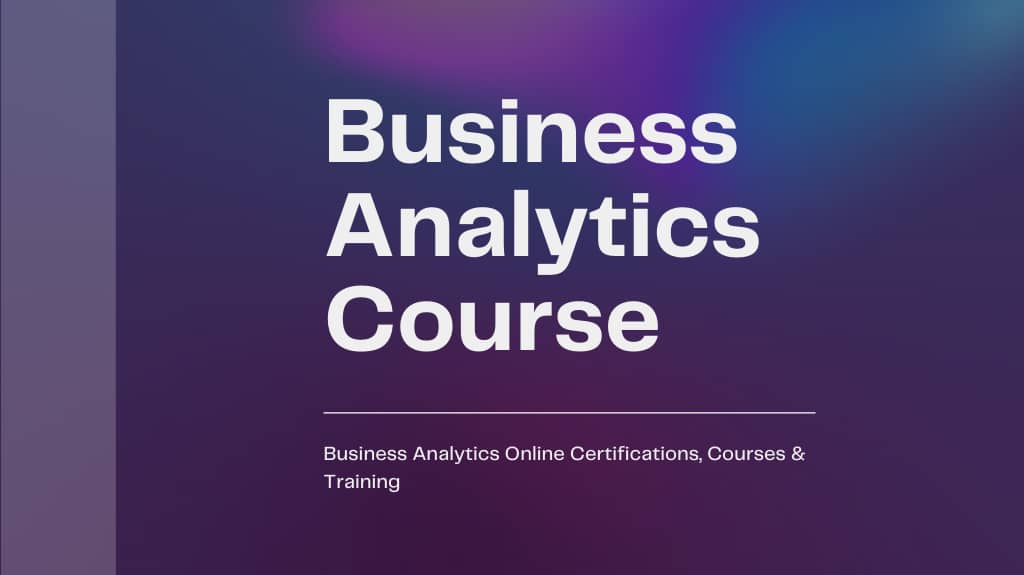10 Best Corporate Finance Certifications Online Courses [UPDATED April 2024]

Looking for Best Corporate Finance Certifications? Here’s a list of top online Best Corporate Finance Certifications Courses, classes, and training.
Corporate finance is the branch of finance that deals with the financial decisions made by businesses and the tools and analysis used to make those decisions. Corporate finance’s primary purpose is to maximize shareholder value. Although it differs from managerial finance in that it covers the financial decisions of all firms rather than just corporations, the primary concepts in corporate finance may apply to any firm’s economic challenges.
Long-term and short-term decisions and strategies are divided into the discipline. Capital investment decisions are long-term decisions concerning which projects will be funded, whether that investment will be financed with stock or debt, and whether or not dividends will be paid to shareholders. On the other hand, short-term decisions are concerned with the short-term balance of current assets and liabilities; the emphasis is on managing cash, inventory, short-term borrowing, and lending (such as the terms on credit extended to customers).
Investment banking is also known by the phrases corporate finance and corporate financier. An investment bank’s typical duty is to assess a company’s financial needs and raise the proper form of capital to meet those needs. As a result, the phrases “corporate finance” and “corporate financier” refer to transactions in which capital is raised to start, grow, or buy a corporation.
Corporate finance is concerned with a company’s capital structure, including its funding and management’s efforts to raise its worth. The techniques and analyses used to prioritize and distribute financial resources are also included in corporate finance.
Corporate finance’s ultimate goal is to optimize a company’s worth by planning and implementing resources while balancing risk and profitability.
The Best Online Corporate Finance Certifications Programs
Corporate Finance is essential to any business since it encompasses all financial activities at the heart of running a company. Its ultimate purpose is to increase a company’s worth and profitability by properly planning and implementing resources. Financial accounting, strategy, financial planning and management, valuations, risks and returns, mergers and acquisitions, venture capital, debt and equity raising, and other topics are covered in corporate financial training.
There are numerous opportunities for qualified corporate finance specialists. They can work for an accounting firm, an investment bank, a brokerage firm, a services firm, an independent advisory firm, or any company.
Aside from having the capacity to analyze data and the firm as a whole, successful finance professionals must also interact well with clients and coworkers. Individuals can gain these abilities and a deeper grasp of a company’s financial condition and goals by taking a solid corporate finance training course.
With that in mind, we’ve compiled a selection of the most recognized and top corporate finance online courses, certifications, classes, and training programs that you can complete on your own time. These courses will take you far in your financial path, whether you are just starting or an established Finance professional. The world’s leading finance schools created them and colleges, taught by qualified lecturers, and generally offered free.
Introduction to Corporate Finance
This Corporate Finance Certifications Course presents a quick overview of finance principles, with an emphasis on their application to a wide range of real-world circumstances, including personal finance, business decision-making, and financial intermediation. Time value of money, risk-return tradeoff, cost of capital, interest rates, retirement savings, mortgage financing, auto leasing, capital budgeting, asset valuation, discounted cash flow (DCF) analysis, net present value, internal rate of return, hurdle rate, payback period, and capital budgeting are some of the key concepts and applications.
Michael R. Roberts, a Wharton School Professor of Finance, teaches the subject. He is a well-known professor who has received numerous prizes and accolades for his research and writings in finance. His course is recognized as one of the most respectable and top Coursera finance courses, with over 140,000 students having completed it and giving it good ratings.
Financial Markets by Yale
Professor Robert Shiller, Sterling Professor of Economics at Yale University and winner of the Nobel Prize in Economic Sciences in 2013, teaches this superb Finance course. Prof. Shiller offers this free course to share his knowledge and skills on financial markets. Learners must pay a nominal charge to acquire a course certificate upon completion.
Even though the course is called Financial Markets, it is a reasonably comprehensive finance course that looks at how finance functions in our society. It teaches an understanding of financial theory and, more importantly, how it is applied. This is a practical and valuable beginner’s course that explains numerous financial tools and how they work in a healthy society. Financially smart leadership qualities are highly valued.
Financial Management Specialization
The essentials of strategic financial management, such as financial accounting, investments, and corporate finance, are covered in this Specialization. You will establish an integrated framework for value-based financial management and individual financial decision-making and learn to evaluate important strategic corporate and investment decisions and understand capital markets and institutions from an economic viewpoint.
The University of Illinois iMBA Program offers a Financial Management Specialization. Each course in this Specialization also fulfills a portion of the criteria for a University of Illinois course for which you can receive college credit.
Throughout the Corporate Finance Certifications training, real-world examples and Excel applications are used. For the hands-on practice of the subjects, there are several quizzes and exercises included. The curriculum concludes with a Financial Management Capstone Assignment, which allows students to synthesize their knowledge from all of their courses and put it to use in a real-world project.
Learn to make sound financial and investment decisions
Columbia University’s Corporate Finance certification program is available through the edX online learning platform. Its goal is to teach students the fundamental principles and knowledge of finance and help them develop the skills they need to make sound financial and investment decisions. The information covered in this program is based on a course taught to first-year MBA students at Columbia Business School. It includes principles that any person is interested in business and finance. Daniel Wolfenzon, a world-class lecturer and Columbia Business School Professor of Finance and Economics, teaches it.
These courses provide students with the necessary foundation to evaluate any financial asset. They learn how to evaluate stocks and bonds, with a substantial portion of the course devoted to valuing a firm as a whole. The principles taught are applied through a series of examples, case studies, and hands-on activities in this highly engaging and hands-on program. All of this is accomplished with industry-standard software.
The Corporate Finance Certifications Course features exercises for inquiry and application, online discussions, extra resources for deeper exploration of the themes, and interactive evaluations in addition to video lectures. This hands-on curriculum will allow you to learn through a range of real-world transactions and case studies, as well as work through exercises in building Excel models to help you grasp ideas better.
This program is for students who want to improve their careers in various fields, such as investment banking, private equity, consulting, general management, and corporate CFO track employment.
Corporate Finance Essentials
Javier Estrada, a Financial Management Professor at IESE Business School, teaches this popular Corporate Finance course. It covers the fundamental financial ideas and concepts and the most important financial concerns facing businesses and investors.
This Corporate Finance course is divided into six classes and covers the interplay between corporations and investors in the capital markets. In terms of investors, it discusses topics such as how investors estimate risks and returns, diversification, and international portfolios, among other things. This aids students in comprehending what they read in the financial news.
The course addresses the essential ideas in corporate finance from the perspective of corporations, with a focus on the cost of capital, which is at the heart of most business decisions. Students learn the cost of capital and how to calculate it for a specific company before applying it to analyze an investment project and determine if a company is creating or destroying value.
Throughout the course, there are various activities and hands-on learning. Learners can access the course materials for free, but they must purchase the paid version to receive graded assignments.
Essentials of Corporate Finance Specialization
You’ll get a solid understanding of corporate finance, including accounting concepts and financial analysis, how global markets produce value, the choices companies confront when making financial decisions, and risk attitudes. The specialization comes to a close with a Capstone project that allows you to use everything you’ve learned in class.
This Corporate Financial concentration equips students with the skills and toolset that finance professionals use daily to tackle real-world business problems in complicated situations. The University of Melbourne designed the program’s curriculum in collaboration with finance specialists at The Bank of New York Mellon (BNY Mellon), one of the world’s oldest and most recognized financial organizations.
The specialization consists of five courses that provide a solid foundation in financial analysis and corporate decision-making. All of the classes are firmly founded in finance practice, ensuring that students are aware of current financial market events and equipping them with the financial tools they need to make well-informed business decisions in the future.
Corporate Finance Certification Courses by Coursera
Coursera Finance courses are an excellent option for anyone wishing to improve their skills and progress their career in finance. There are programs to suit everyone’s interests, ranging from beginner courses to intermediate and advanced themes. Based on your present experience levels and the amount of effort and time you can contribute, you can enroll in online master’s degrees, professional certificate programs, specializations, individual courses, and guided projects.
Corporate Finance Courses by LinkedIn Learning
With their abundance of expert-led courses on Corporate Financial, the LinkedIn Learning platform provides a terrific opportunity to receive the correct finance training. These courses provide students with a strong foundation in essential areas of corporate finance and finance in general, such as risk management, financial analysis, capital budgeting, financial planning, financial modeling, and decision-making. These financial seminars are meant to equip students with the skills they’ll need while applying for jobs or progressing in their careers in finance. Get the training you need to stay ahead with expert-led courses on Corporate Finance.
Corporate Finance & Accounting Courses by Udemy
Udemy is a great place to start if you want to improve your financial skills. Corporate finance, accounting, financial management, financial planning, firm valuation, financial analysis, CFA, mergers and acquisitions, financial modeling, and other topics are covered in several courses. Learners can select appropriate courses based on their current level of experience and desired skills.
OnlineCorporate Finance Courses by edX
On edX, you may take a variety of free finance courses to learn about corporate finance. There are introductory and advanced finance courses available to help students develop their careers or make the leap to finance. Individual lessons, MicroMasters programs, and Professional Certificate programs are available on edX from leading schools and universities worldwide. Though the course material usually is available for free auditing, you will need to choose the premium option if you want access to graded assignments and a certificate of completion at the end of the program.
By enhancing your financial knowledge, you can work toward financial freedom and attain your targeted financial goals. edX has several introductory online courses and tutorials to help you improve your financial skills. Create a plan to learn about financial concepts such as money management, credit scores, financial statements, and more. Finance Essentials from Imperial College Business School teaches you how to use essential finance tools in management and MBA learning contexts and how to analyze common financial issues encountered in everyday life. You’ll learn how to value assets using the time value of money, capital budgeting for a project (such as a flat or house purchase), and how to manage assets for retirement, among other things.
Learn finance online with various beginner and advanced courses to help you start a new career or upgrade your current one. Many courses are free, self-paced, and take about 6-8 weeks to finish. Begin your finance education with self-paced courses in financial decision-making, then move on to individual financial planning courses in accounting or financial planning, or enroll in a Professional Certificate or MicroMasters program. The New York Institute of Finance, for example, provides professional credentials in Risk Management, Mergers & Acquisitions, Mortgage-Backed Securities, and other lucrative and in-demand investment banking fields. These courses are meant to help you prepare for a finance degree or give you a competitive edge when applying for jobs or moving up in your profession.
With online finance classes, you may learn more about interest rates, stocks and bonds, the stock market and Wall Street, share price and price targets, savings accounts, personal financial planning, financial positions, net present value, short-term financing, balance sheets, and more.
Conclusion
While this is not a comprehensive list of the Corporate Finance Certification Training courses available online, we attempt to include all the top-rated courses.
We suggest you attempt more than one class to make as much progress as expected concerning the information. Additionally, you can decide to stay with one sort on the off chance you are searching for explicit abilities. However, most of these information representations online courses share an excellent deal. Tell us about your questions, ideas, inquiries, and criticism. We love to hear from you. Till then, at that point, continue to learn!
Corporate Finance Course FAQ
We all manage our finances and utilize money, but what does it mean to study finance in a commercial context? The process of obtaining needed cash and how that funding is managed and dispersed inside a company are all covered under corporate finance.
In terms of day-to-day operations, this entails understanding proper accounting and bookkeeping methods to effectively manage cash flows in and out of various business divisions and maintain the corporate balance sheet to keep the lights on. Finance expertise is crucial for establishing any business funding strategy regardless of the mix of cash, debt, and equity investors and equity sources such as venture capital, private equity, or even an IPO.
While money is the ultimate fungible commodity, financial positions aren’t as interchangeable as some people believe. Accountants and certified public accountants (CPAs), controllers, actuaries, bankers, and financial planners are traditional finance vocations that are always in demand. Most major firms have a chief financial officer (CFO) in the executive suite.
Fast-growing occupations in finance are evolving at the same rate as the world of finance. Environmental accountants, for example, provide advice at the crossroads of the environment and company, with tasks such as estimating regulatory compliance costs and suggesting cost-cutting ecological projects. In cases of corporate fraud, corruption, organized crime, and increasingly complicated financial crimes, forensic accountants are the financial world’s detectives, tasked with “following the money.”
Regardless of the type of career, you wish to pursue, investing in your education can help you get there.
Finance jobs are best suited to people who can understand and interpret financial data and risk trends. A job in finance requires quantitative solid and critical thinking skills. It’s crucial to be interested in and comprehend micro and macroeconomics and the relationship between regular people earning and spending money and global financial organizations. People who are best suited for finance jobs should be interested in current events and international economic policy, as these issues impact financial institutions both at home and abroad.
Working as an accountant is one of the most prevalent financial career options. Accountants are in charge of presenting financial information to coworkers and clients. Individuals and estates may hire financial advisors to manage and plan their financial holdings. Financial analysts create models to aid bankers, firms, and investors with stock offerings and future estimates. Working as a budget analyst for a firm, government institution, educational facility, or charitable organization is another frequent job option for finance.
Financial markets-related topics may help to understand behavioral finance and economics. Learners may want to look into global financial markets and risk management for a more comprehensive perspective. Quantitative modeling, financial modeling, linear regression, and corporate finance are examples of analysis topics. Learners will better understand how to manage risk and achieve financial goals by studying investment and portfolio management. Learners who want to improve their economics skills should look into topics centered on markets and allocation. Check also the pages on game theory, competition, and monopoly markets for a more detailed perspective. What types of companies hire persons with a financial background?
People with a background in finance are hired by financial organizations such as banks, investment firms, accounting firms, and credit unions to manage capital, develop estimates, and undertake extensive analysis. Insurance companies hire people with a background in finance to analyze risk and handle policies for individuals and corporations. Mortgage businesses employ mortgage brokers to conduct risk assessments and give loans to qualified applicants.

























